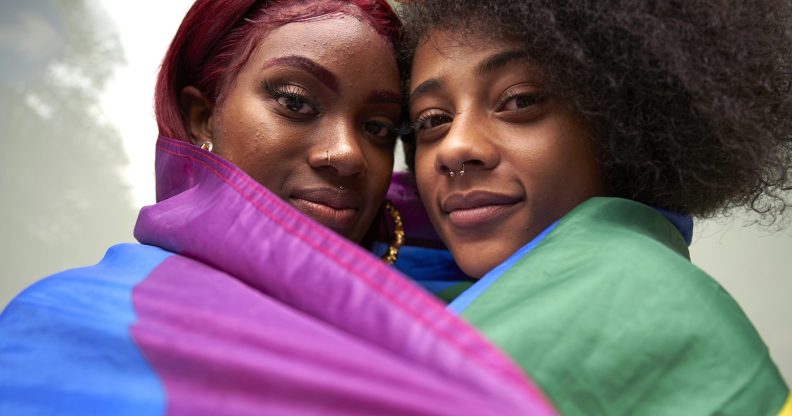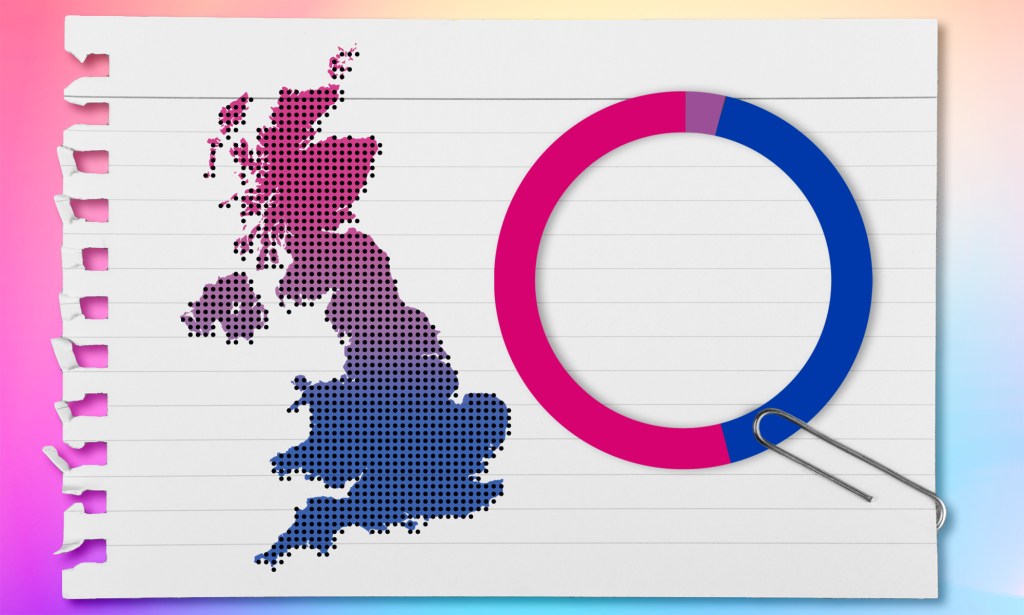Almost a quarter of Gen Z women don’t identify as straight, eye-opening study finds

A new survey shows more than twice as many Gen Z women identify as bisexual compared to UK women nationally. (Getty)
Almost a quarter of Gen Z women don’t identify as straight, according to a new report, with more than twice as many identifying as bisexual compared to other age groups.
An in-depth survey of the UK’s sexual habits and attitude by sexual wellness brand Hims & Hers Health shows that Gen Z women – those born after 1997 – are the least likely social group to self-identify as heterosexual.
They are also much more likely to identify as bisexual than their older counterparts.
Let’s Talk About Sex: The 2023 UK Report collected results from a 3,688-person online survey of 3,500 nationally representative adults and 396 Hims & Hers Health customers aged from 18-65.
Published on Thursday (9 March), its shows that just 76 per cent of Gen Z women in the UK self-identify as heterosexual, compared to 87 per cent across all other age groups.

Fourteen per cent of Gen Z women identified as bisexual – more than double the six per cent seen across other ages group.
Five percent of Gen Z women described their sexuality as “other” – a survey option that included pansexual, asexual and queer – compared to just 2.5 per cent of women in the UK as a whole.
Notably, the percentage of women who identified as gay remained the same across all ages groups, at three per cent.
Meanwhile, two per cent of respondents of all age groups stated that they’d prefer not to respond.
The findings of the Hims & Hers Health report echo those of the UK Census published by the Office of National Statistics (ONS) in January, that showed the 16-24 age group had the highest proportion of lesbian, gay and bisexual people.

Census date showed that of this age group, 6.91 per cent said they were lesbian gay or bi (the data did not consider gender identity) – more than twice the percentage (3.16 per cent) of the overall population.
The UK census also shows that across all age groups, women were twice as likely as men to identify as bisexual (1.76 per cent vs 0.78 per cent), while men were more likely to identify as gay (1.95 per cent vs 1.15 per cent).
Alix Fox, a journalist, broadcaster and sex expert who has also worked as a script consultant on hit Netflix series Sex Education, told Hims & Hers Health that a broader reported spectrum of sexual identity among Gen Z women could be linked to fast-evolving language around sex and sexuality.
“My personal belief is that there have always been people with proclivities towards sexual identities and relationship models outside the heterosexual, monogamous, mainstream ‘norm’,” said Fox.
“Nowadays however, greater knowledge of terms like ‘pansexual’, ‘demisexual’ and ‘consensually non-monogamous’ means it’s easier to describe and discuss these feelings, and there’s enhanced appreciation of their legitimacy.”
Fox continued: “Cultural gender roles are changing. And when you open your mind about what life as a woman can be, then questioning how you might want things to look for you sexually is a natural part of that. It can be very liberating.”
How did this story make you feel?

